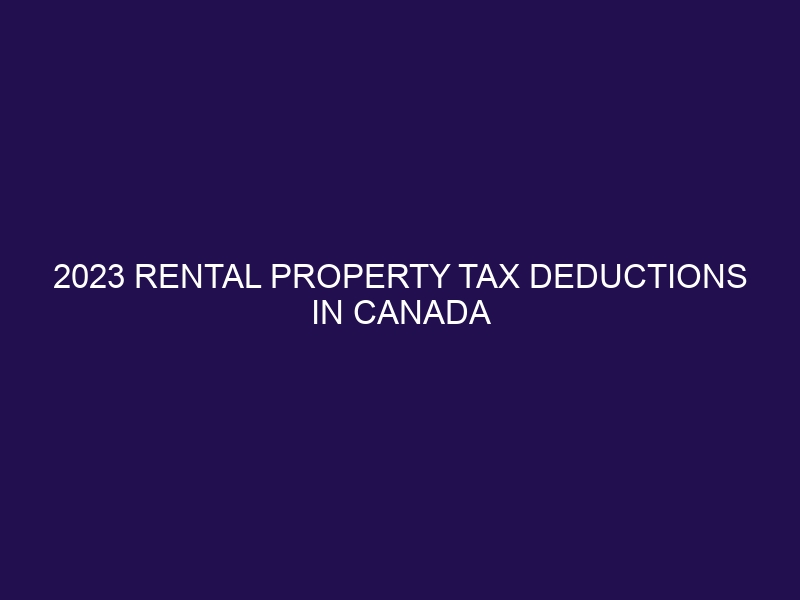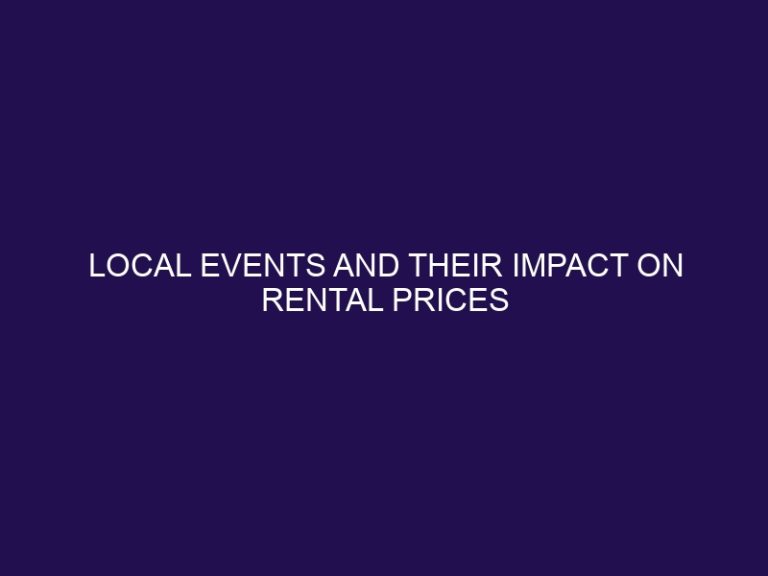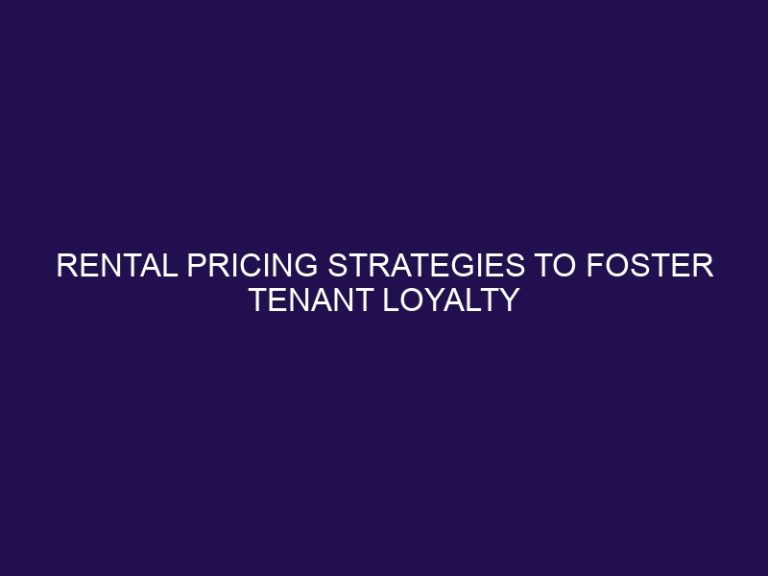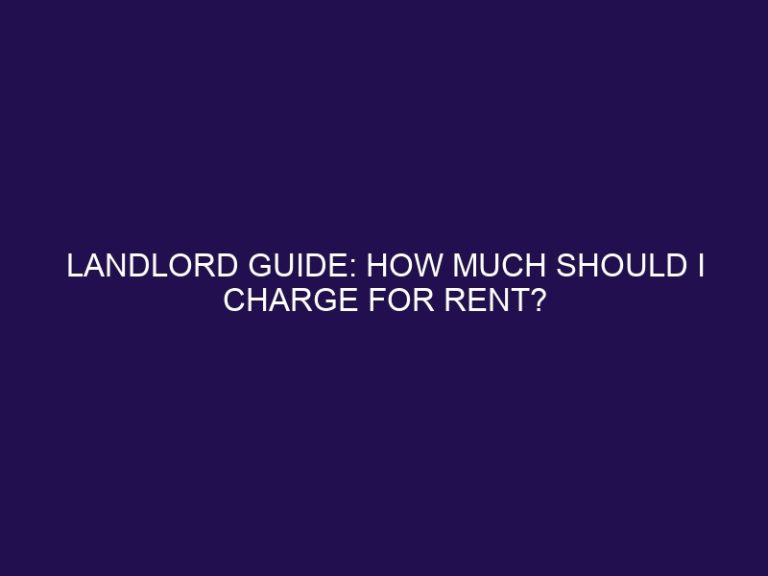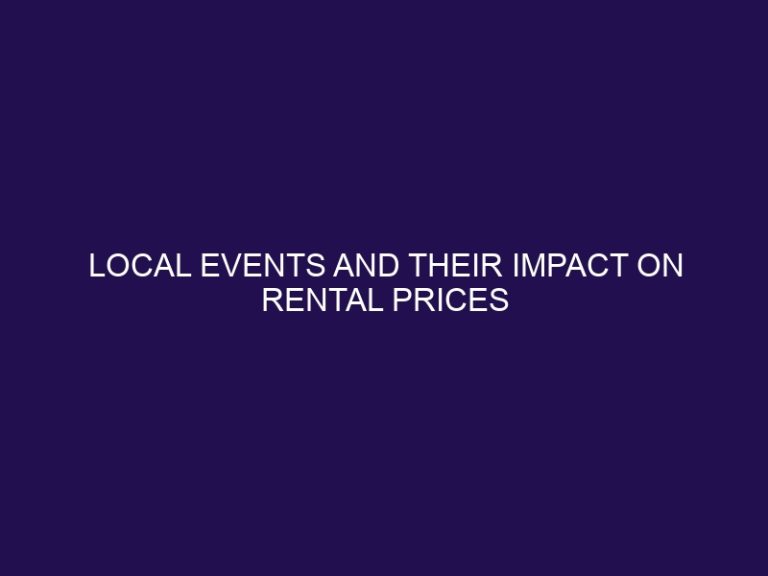2023 Rental Property Tax Deductions In Canada
Owning and renting out a property in Canada comes with its own set of financial responsibilities. One crucial aspect for rental property owners to understand is the concept of tax deductions. Tax deductions can help property owners save money by reducing their taxable income and ultimately lowering their overall tax liability. Here, we will dive into the specifics of rental property tax deductions in Canada for the year 2023.
Tax deductions for rental properties are expenses that property owners can deduct from their rental income when calculating their taxable income. These deductions can include various expenses directly related to the property’s ownership and maintenance. They help property owners offset the costs associated with operating and maintaining their rental properties.
Tax deductions are essential for rental property owners as they can significantly impact their financial bottom line. By taking advantage of eligible deductions, property owners can reduce their taxable income and potentially increase their cash flow. This allows them to allocate more resources towards property maintenance, improvements, and future investments.
In 2023, there are specific changes expected in rental property tax deductions in Canada. These changes may include updates to allowable deductions, revised eligibility criteria, and adjustments to deduction limits. Staying informed about these changes is crucial for property owners to ensure compliance and maximize their allowable deductions.
Some common rental property tax deductions in Canada include:
- Mortgage Interest: Deducting the interest paid on the mortgage loan used to finance the rental property.
- Property Taxes: Deducting the amount paid for property taxes imposed by the local municipality.
- Repairs and Maintenance: Deducting expenses related to repairs, maintenance, and general upkeep of the rental property.
- Insurance: Deducting the premiums paid for insurance coverage on the rental property.
- Utilities: Deducting the costs of utilities directly related to the rental property, such as electricity, water, and heating.
- Advertising and Marketing: Deducting expenses for advertising and marketing the rental property to attract tenants.
- Professional Services and Fees: Deducting fees paid to professionals such as accountants, lawyers, and property managers.
- Home Office Expenses: Deducting a portion of home office expenses if a part of the property is used for business purposes.
- Capital Cost Allowance (CCA): Deducting the depreciation of the rental property’s capital assets over time.
Keeping meticulous records and documentation of all rental property-related expenses is vital when claiming tax deductions. Property owners must maintain accurate records and supporting documents to substantiate their deductions in case of a tax audit.
Understanding rental property tax deductions and staying up-to-date with the specific deductions available in Canada for 2023 can help rental property owners optimize their tax planning and financial management strategies.
Understanding Rental Property Tax Deductions
Understanding rental property tax deductions is essential for landlords in Canada. These deductions can help reduce taxable income and save money. Here are some key deductions to consider:
| # | Deduction | Description |
|---|---|---|
| 1. | Mortgage interest | Landlords can deduct the interest paid on their mortgage loans for rental properties. |
| 2. | Property taxes | The taxes paid on rental properties can be claimed as deductions. |
| 3. | Repairs and maintenance | Expenses related to repairs, maintenance, and improvements on rental properties are deductible. |
| 4. | Insurance premiums | The cost of insuring rental properties can be deducted. |
| 5. | Utilities | Landlords can deduct the cost of utilities paid for rental properties. |
| 6. | Advertising and marketing | Expenses for advertising and marketing rental properties are deductible. |
| 7. | Professional services | Fees paid to accountants, lawyers, and property managers are deductible. |
| 8. | Travel expenses | Costs associated with visiting rental properties or attending landlord-related events can be deducted. |
Understanding these rental property tax deductions can help landlords maximize tax benefits and manage their rental properties more effectively.
What are Tax Deductions for Rental Properties?
Tax deductions for rental properties refer to the expenses that rental property owners can deduct from their taxable income. These deductions play a vital role in reducing the overall tax liability and optimizing profits for property owners. They encompass various categories such as mortgage interest, property taxes, repairs and maintenance, insurance, utilities, advertising and marketing, professional services and fees, home office expenses, and capital cost allowance. The significance of these deductions lies in their potential to significantly impact the cash flow and profitability of rental property owners. However, it is crucial to maintain proper recordkeeping and documentation to ensure eligibility for these deductions. To gain a comprehensive understanding and make the most of available deductions for your rental property, it is advisable to consult with a tax professional.
Why are Tax Deductions Important for Rental Property Owners?
Why are Tax Deductions Important for Rental Property Owners?
Tax deductions are of utmost importance for rental property owners as they provide financial benefits and reduce the overall tax burden. There are several reasons why these deductions play a crucial role:
- Lower Taxes: Deducting expenses such as mortgage interest, property taxes, and repairs can substantially reduce taxable rental income, resulting in decreased tax payments.
- Increased Cash Flow: Lower taxes imply more money in the owner’s pocket, enabling reinvestment in property improvements or personal needs.
- Incentive for Property Investment: Tax deductions make rental properties financially attractive, thereby encouraging individuals to invest in real estate and contribute to the housing market.
- Reward for Property Maintenance: Deducting expenses for repairs, maintenance, and improvements serves as a reward for owners who take care of their properties and ensures they remain appealing to tenants.
- Encouragement for Rental Housing: Governments support the availability of rental housing by providing tax incentives, which is especially essential for individuals who are unable to afford homes.
To make the most of these tax deductions, rental property owners should maintain detailed records, seek advice from tax professionals, and stay updated on any changes in tax laws.
2023 Rental Property Tax Deductions in Canada
When it comes to rental property tax deductions in Canada for 2023, there are several factors to consider. Here is a breakdown of the key deductions available:
| Deduction | Description |
|---|---|
| Mortgage Interest | Deduct the interest paid on your mortgage for your rental property. |
| Property Taxes | You can deduct the property taxes paid on your rental property. |
| Repairs and Maintenance | Expenses for repairs and maintenance of your rental property are deductible. |
| Insurance Premiums | Deduct the premiums paid for insuring your rental property. |
| Utilities | Certain utilities, such as heating and electricity, can be deducted. |
| Professional Services | Fees for legal and accounting services related to your rental property. |
Remember to keep accurate records and consult with a tax professional to maximize your rental property tax deductions in 2023.
What Changes to Rental Property Tax Deductions are Expected in 2023?
While there is no specific information available regarding the changes to rental property tax deductions expected in 2023, it is crucial to stay informed about any potential updates to the tax laws to understand what changes to rental property tax deductions we can expect in 2023. Keeping up with changes in legislation can help rental property owners maximize their deductions and minimize their tax liability. It is advisable to consult with a tax professional or stay updated with government announcements to ensure compliance with any new regulations related to rental property tax deductions. By staying proactive and informed about what changes to rental property tax deductions are expected in 2023, rental property owners can make the most of available deductions and optimize their financial situation.
Common Rental Property Tax Deductions
Looking to optimize your rental property tax deductions in Canada? Look no further! In this section, we’ll uncover the most common deductions that can help lighten your tax burden. From mortgage interest and property taxes to repairs and maintenance, we’ll explore the key deductions that every landlord should be aware of. Get ready to discover the financial advantages of insurance, utilities, advertising, professional services, home office expenses, and even capital cost allowance. Let’s dive into the world of rental property tax deductions and maximize your savings!
1. Mortgage Interest
When it comes to rental property tax deductions in Canada, mortgage interest is an essential and influential factor to consider. This deduction allows property owners to deduct the interest paid on their mortgage from their taxable rental income, ultimately reducing their overall tax liability and maximizing their financial return from rental properties. It is of utmost importance for rental property owners to maintain detailed records of their mortgage interest payments to accurately claim this deduction. The mortgage interest deduction plays a significant role in managing tax obligations and should be meticulously considered by rental property owners in Canada.
2. Property Taxes
Property taxes are a crucial consideration for rental property owners in Canada. These property taxes play a significant role in determining the profitability of your investment. To make informed decisions and ensure that you are maximizing your deductions, it is essential to comprehend the importance of property taxes in rental property ownership. Here are some key points to consider:
1. Determine the amount: Property taxes vary depending on the location and assessed value of the property. It is crucial to accurately determine the amount you owe to properly account for it in your rental property expenses.
2. Deductibility: Property taxes are generally deductible as an expense when calculating rental property income. This deduction helps reduce your taxable rental income and can result in substantial tax savings.
3. Keep records: It is important to maintain documentation of property tax payments as proof of your expenses. This includes receipts, invoices, and any correspondence with tax authorities.
4. Consult a professional: Due to the complexity and potential changes in tax laws related to rental property deductions, seeking professional advice from an accountant or tax specialist is highly recommended. This will ensure that you are maximizing your deductions and complying with all tax regulations.
By understanding and appropriately deducting property taxes, rental property owners can minimize their tax liability and maximize their returns on investment.
3. Repairs and Maintenance
- Repairs and maintenance are necessary expenses for rental property owners. These tasks are essential to keep the property in good condition and prevent more significant issues. Whether it’s fixing broken appliances, repairing plumbing or electrical issues, or addressing structural damages, all repairs are crucial.
- Regular maintenance plays a vital role in maintaining the property’s overall condition. It involves routine cleaning, landscaping, and regular servicing of HVAC systems. By staying on top of maintenance tasks, property owners can prevent costly damages in the long run.
- Repairs and maintenance expenses incurred can be deducted from the taxable income of rental properties. This deduction helps in reducing the overall tax burden for property owners.
- When claiming these deductions, proper documentation is essential. Property owners should keep receipts and invoices for all repairs and maintenance expenses to support their tax claims.
4. Insurance
Insurance is an essential expense for rental property owners because it provides protection and peace of mind. Here are some important insurance considerations:
- Liability coverage: Insurance protects against legal claims if someone gets injured on your rental property.
- Property damage coverage: Insurance helps cover repair costs in case of fire, theft, or other damages.
- Rental income protection: Insurance can provide coverage if your property becomes uninhabitable, compensating you for lost rental income.
- Landlord insurance: Specifically tailored for rental properties, this type of insurance may offer additional coverage options.
Did you know that some insurance providers offer discounts for bundling multiple policies? This can help you save money while ensuring comprehensive coverage for your rental property.
5. Utilities
- Electricity: Deduct the cost of utilities used for common areas or any utilities paid on behalf of tenants.
- Water: Include water bills paid by the landlord.
- Gas: Deduct gas costs for heating or cooking in the rental property.
- Sewer: Include utilities fees paid by the landlord.
- Garbage collection: Deduct the costs of garbage collection services.
- Internet and cable: If provided to tenants, these costs can be deducted.
Fact: According to a recent study, the average annual cost of utilities for a rental property in Canada is around 5-7% of the property’s total income.
6. Advertising and Marketing
Advertising and marketing play a vital role in the success of rental property owners, as they help attract potential tenants and maintain high occupancy rates. To promote rental properties effectively, there are various strategies and platforms available.
| Effective Advertising and Marketing Strategies | Benefits |
| Utilizing online listing platforms (such as Zillow or Craigslist) | Enables reaching a wide audience and targeting specific demographics |
| Incorporating professional photography and virtual tours | Showcases property features and attracts potential tenants |
| Implementing social media marketing techniques | Helps engage with a larger audience and build brand awareness |
| Using print advertisements | Allows reaching local audiences and specifically targeting neighborhoods |
| Leveraging word-of-mouth referrals | Utilizing existing tenant networks to establish credibility |
7. Professional Services and Fees
| Professional Services and Fees |
|---|
| Professional services and fees play a crucial role in managing rental properties in Canada. These services include legal, accounting, property management, and other professional fees associated with running a rental business. |
| Hiring professionals can provide expert advice, ensure compliance with tax laws, handle tenant-related issues, and optimize the financial aspects of the property. The cost of these services is tax-deductible, reducing the overall tax liability for rental property owners. |
| By utilizing professional services, landlords can streamline operations, maximize profits, and ensure a smooth rental experience for both themselves and their tenants. |
| Legal fees for drafting or reviewing lease agreements |
| Accounting fees for preparing financial statements and tax returns |
| Property management fees for overseeing day-to-day operations |
| Real estate agent fees for tenant placement and property marketing |
| Condo or homeowners association fees |
8. Home Office Expenses
Setting up a home office for your rental property can provide you with the opportunity to deduct various expenses and minimize your tax liability. Here are some examples to consider:
- Office Supplies: You can deduct the cost of office supplies such as pens, paper, and printer ink that are exclusively used for your rental property business.
- Equipment: Claiming a portion of the cost for computers, printers, and other office equipment used for your rental property is also permitted.
- Internet and Phone: If you have a specific phone line or internet connection for your rental property, you are eligible to deduct the expenses associated with these services.
- Furniture: In case you buy furniture solely for your home office, you can gradually deduct its cost over time through depreciation.
Fact: Deducting your home office expenses not only helps in reducing your tax liability but also enables you to maintain a professional and efficient workspace.
9. Capital Cost Allowance
Capital cost allowance, also known as CCA, is a critical deduction for individuals who own rental properties in Canada. This deduction allows them to gradually recover the expenses incurred on depreciable assets utilized in their rental business. By claiming CCA on their yearly tax return, property owners are able to reduce their taxable income derived from rental properties. The rates of allowable CCA are determined based on the specific type of asset being depreciated, which can include buildings, furniture, or equipment. It is essential to maintain proper records and documentation to ensure an accurate determination and claim of CCA. To comply with regulations and maximize the advantages of capital cost allowance deduction, it is advisable to seek guidance from a tax professional or utilize tax software.
Recordkeeping and Documentation for Rental Property Tax Deductions
When it comes to rental property tax deductions in Canada, recordkeeping and documentation are essential for maximizing your tax benefits.
- Maintain organized records: Keep track of rental income, expenses, and receipts throughout the year.
- Document property improvements: Keep records of any renovations or upgrades made to the rental property, as they may qualify for deductions.
- Record rental expenses: Keep a detailed record of expenses related to property management, repairs, utilities, insurance, and mortgage interest.
- Track rental activities: Document any changes in rental occupancy, rental agreements, or rental income received.
By diligently maintaining records and documentation for rental property tax deductions, you can ensure accurate reporting and potentially reduce your tax liability.
Frequently Asked Questions
1. What are eligible expenses for rental property tax deductions in Canada?
Eligible expenses for rental property tax deductions in Canada include advertising fees, property insurance premiums, mortgage interest, bank charges, office expenses, professional fees, and property taxes.
2. Can I deduct home insurance premiums as a rental property expense?
Yes, you can deduct home insurance premiums paid for your rental property as an eligible expense for tax purposes.
3. Are loan interest and mortgage insurance deductible expenses for rental properties?
Yes, both loan interest and mortgage insurance are deductible expenses for rental properties in Canada.
4. What is the difference between current expenses and personal expenses for tax purposes?
Current expenses are recurring expenses directly related to the maintenance and repair of the rental property, while personal expenses are not deductible for tax purposes. Examples of current expenses include repairs and maintenance, while personal expenses would be items for the landlord’s personal use unrelated to the rental property.
5. Can I deduct motor vehicle expenses for rental property management?
Yes, motor vehicle expenses related to the management of your rental property, such as traveling to and from the property for maintenance or rental-related activities, can be deducted as eligible expenses.
6. What are capital expenses and how do they affect rental property tax deductions?
Capital expenses are expenditures that provide a lasting advantage or benefit to the property’s market value, such as renovations or improvements. These expenses need to be added to the property’s value and depreciated over time, affecting the deductions over multiple tax years.

